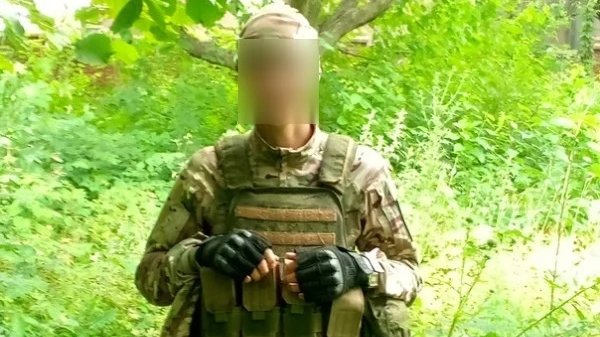
A former prisoner and Storm Z soldier from the Primorsky region in the Russian Far East has told Novaya Gazeta Europe that he deserted from his unit in Ukraine to avoid ongoing extortion by his commanding officers.
The serviceman, who we are unable to name for his own safety and who served in Storm Z, a Russian military unit made up of former prisoners freed to fight in Ukraine, says his commanders would imprison their own rank and file in the basement for the pettiest of violations.
To secure their release, soldiers would have to pay 15,000-20,000 rubles (€150-200), he said, describing the basement as a small room just three metres by three metres, which always had 10 men in it. “It’s stifling and really stinks. You have to go to the toilet in a bottle,” he added.
Extortion was not the only problem described by the source, however, who said that injured combat troops were regularly returned from hospital to the front before they were fully recovered. The source said that despite being discharged from hospital with a note advising against physical activity, he was sent to the front line without a bulletproof vest and then imprisoned in the basement. It was at this point he decided to desert, which he later did with a fellow conscript who was caught.
Our interviewee has been in Donetsk since October. He says his contract ended on 28 November, but he cannot go to Russia as he has no documents. He contacted a lawyer to file a complaint about the abuse and extortion with the military prosecutor, but was told that “the prosecutor dealing with Storm Z is in Novocherkassk, and you need to file your complaint there”.
This is not the only case of extortion Novaya Europe has been made aware of in the Russian military. The mother of another former prisoner recruited to fight in Ukraine recounted how her son had told her that the unit commander withdrew money from bank cards the Defence Ministry had issued to Storm Z servicemen on which to receive their salaries.
“The pin code came in the same envelope as the card. They opened them and … withdrew 160,000 rubles (€1,600). … They gave them their cards in open envelopes,” she says.
Another three assault troops we spoke to said they had never encountered extortion from commanding officers.
Last month, Novaya Gazeta Europe reported that Russian front-line soldiers have a system of bribes to purchase various services including “injuries”, leave, rotation and even to avoid active combat altogether.
An officer from the motorised rifle platoon said an injury needing hospitalisation costs between $10,000 (€9,100) and $50,000 (€45,500), depending on rank and which part of the front the soldier is on.






